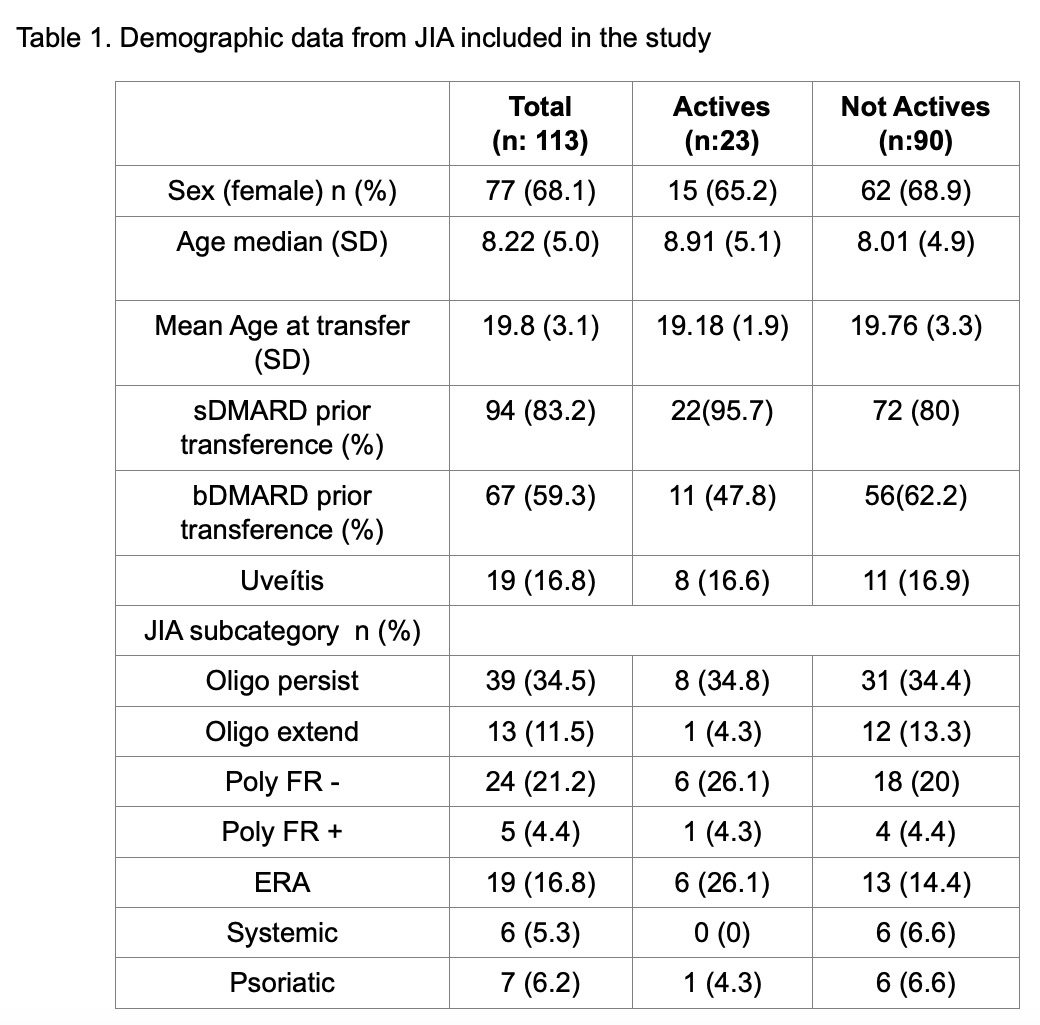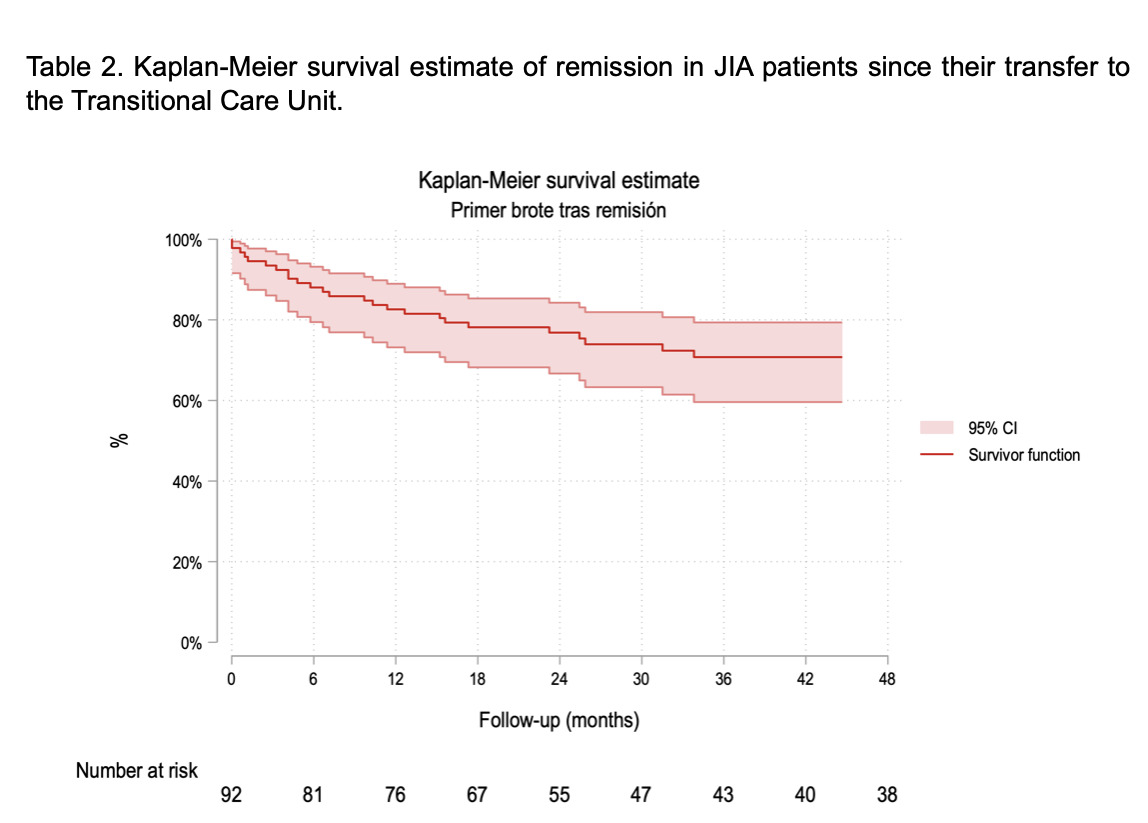Session Information
Session Type: Poster Session A
Session Time: 9:00AM-11:00AM
Background/Purpose: Juvenile Idiopathic Arthritis (JIA) are a group of heterogeneous arthritis with onset in childhood. According to previous studies, this patients experience an improvement of their disease activity, functionality and even remission as they become young adults 1. Transitional care units aim to coordinate an uninterrupted follow-up in patients with chronic diseases.2 Our transitional care unit attend patients from 18 to 25 years old who have been previously diagnosed with any rheumatic disease during childhood. Our primary objective was to describe the disease activity of JIA patients at the transference to our unit and the remission maintenance during follow-up.
Methods: We conducted an observational retrospective longitudinal study from a cohort of patients with JIA who have been transferred to our transitional care unit. We selected patients with at least one clinical visit and have active follow-up. We collected demographic data, JIA classification, previous treatments and the treatment at time of transfer, articular and ocular flares, remission defined by Wallace criteria3 and changes in treatment during follow-up.
Results: From December 2016 to December 2021 we received 113 with JIA diagnosis, the mean age at transfer was 19.8 years. Demographic characteristics of patients are shown in Table 1. About 31% of the patients had a flare through the 3 years of follow-up, most of them were women (71.4%). Both oligoarticular (37.1%) and polyarticular (37.1%) and spondyloarthritis (25.7%) had inflamamatory flares in similar proportion.
It is important to notice that from 45 patients (38.9%) who had a flare prior to transfer 37.8% had another flare during follow-up. While, 26.5% of the patients who never had a previous flare presented a new flare during this follow-up. Flares during transfer were independent from patient’s previous inflammatory activity; and the previous treatment did not influence the risk of flare development.
Conclusion: Flare risk during transfer was independent from previous activity and treatment. The flare frequency was slightly reduced over time (39,8% vs. 31%) (Table 2).
To cite this abstract in AMA style:
Carpio Astudillo K, clemente Garulo D, Lopez-Robledillo J, Bourgeois Avella C, Trives Folguera L, López López A, Alvaro-Gracias J, Monteagudo Sáez I, Nieto-Gonzalez J. Disease Activity of Juvenil Idiopathic Arthritis in Transitional Care [abstract]. Arthritis Rheumatol. 2023; 75 (suppl 9). https://acrabstracts.org/abstract/disease-activity-of-juvenil-idiopathic-arthritis-in-transitional-care/. Accessed .« Back to ACR Convergence 2023
ACR Meeting Abstracts - https://acrabstracts.org/abstract/disease-activity-of-juvenil-idiopathic-arthritis-in-transitional-care/


